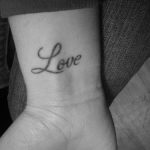“We are all in this together and there is no therapist and no person immune to the inherent tragedies of existence”.
I read this passage from Irvin Yalom’s Book titled The Gift of Therapy and it touched something within me deeply. It was the reason I began my career in social work. The reason was to reach people, to join together to help create change and to help ease some of the burden that lies in being human. A passion was ignited within me at a young age to reach people in all walks of life and to do so in a meaningful and honest way. The truth about being a therapist is that it is not selfless work. There is little in this world that is. Being a therapist is a calling and therefore fills a deep need within those of us who do the work each day. It fills a need to connect and a need to help facilitate change. Just as joy and laughter are a beautiful part of life, so is suffering. Most of us need support on our journey to figuring out what to do with that suffering. I am not immune to that suffering, in fact it is because I have been touched by it that I am where I am today and am able to do the work that I do. The things I am reading in the news every day, the stories I am hearing from people in my community, all speak to the fact that while the dialogue about mental health is catching, it needs constant fuel to ensure that it doesn’t burn out. It is this dialogue that will save lives if we keep it going. But we must keep it going.
Someone asked me the other day if depression is for life. “Is it like addiction? Once you have it, you have it forever?” Depression is often at the forefront of our discussions regarding mental health. The reason is clear: it is so prevalent and relevant. While this is encouraging in that it means the dialogue is opening up surrounding the subject, it is often not being used correctly which is problematic for those suffering from depression. “I’m depressed. It’s just who I am.” Believe it or not I have heard this more than once. My question is always, “what does that mean to you, what is depression to you?” It is shocking how frequently the response is: “I’m not sure”. The word has become a catch all for things not going well in our lives. When this is tied to the stigma that is still woven throughout our society surrounding depression, it creates even more unrest in someone believing themselves to be depressed. The belief is I am depressed therefore I am broken. I can instantly feel the hope drain from the person sitting in front of me as they share this with me. But depression, like all mental health issues, is far from hopeless. Being broken is part of being human, we are born broken and it isn’t until death that we become free from the brokenness. Feeling sad is not depression. We all feel sad sometimes. It is one of our most natural and human emotions. Depression goes deeper than sadness. Depression resides in ones mind and heart like a beast, robbing the world of beauty, light, joy, and hope. The less we talk about it, the greater it grows, the longer it lingers, the more painful it becomes.
Jamie Tworkowski writes in his book If You Feel Too Much, “We all have our past. We all have our pain. We will all know ghosts from time to time. But if our life is like a building, then we should open our doors to let some people see inside. Into our darkest places, into those rooms that hold our fears and dreams.” Depression whispers to stay silent, to stifle your story, to not ask for help. The courage comes in doing the opposite. When I am asked what I do and the type of people I see, my initial reaction is to always respond by saying, “I see people like you. And I listen to their stories.” I am a therapist, but first and foremost I am also a human with my own story and my own pain and my own places that are broken. In the beginning I thought that made me less worthy of helping, listening, supporting, but I know now it actually makes me more capable. Living honestly is one of the greatest challenges we are faced with on a daily basis. We ignore our pain, we push away our discomfort, we hide from depression and anxiety and feelings of insecurity. It is when we step into the light, when we honor the broken parts of ourselves as much as the strong parts, that we become whole. Only then are we able to find true connection, true healing, and true peace.
Mutual need is a concept that rings true not only in my work as a therapist but also in my work as a human. It is when we free ourselves from the fear of being in pain, the fear of being broken, the fear of facing our demons, that we begin to see clearly. We are all in pain at some point in our lives. If we join together in that, the pain lessens, the burden lightens, and the darkness wanes.


